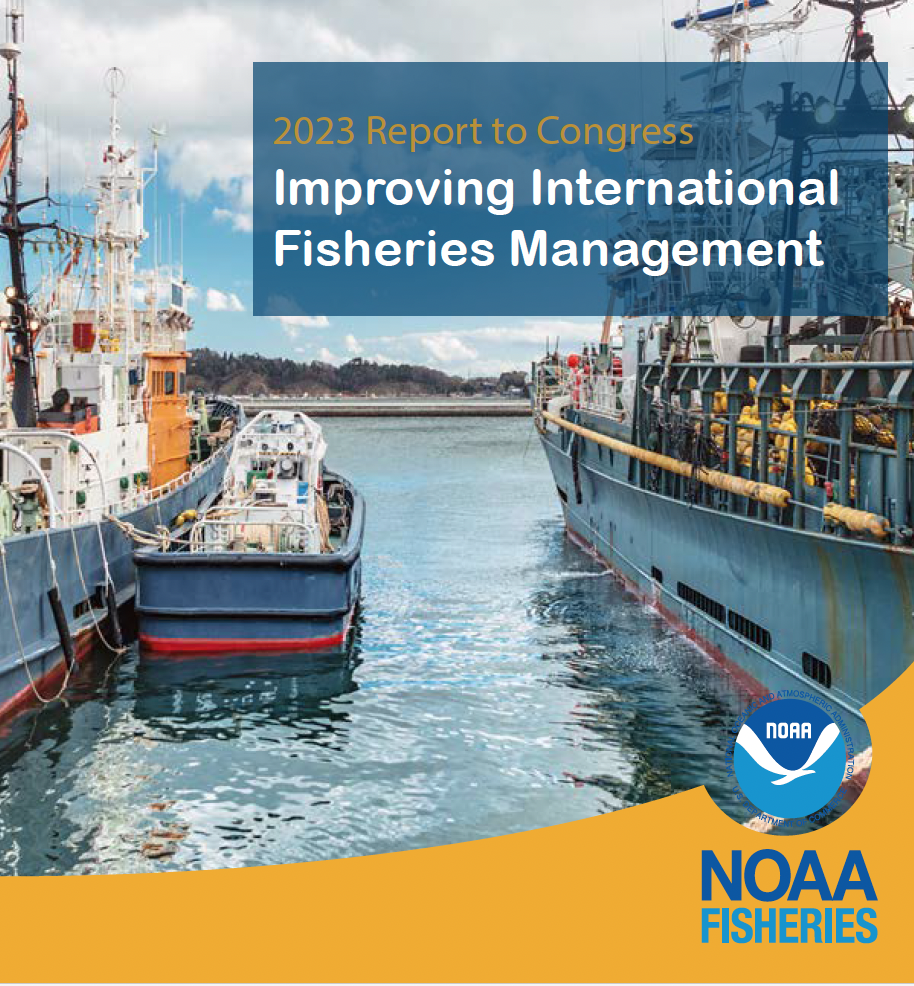I wrote in the past about the biennial reports to Congress by NOAA Fisheries as a mandated requirement of the High Seas Driftnet Fishing Moratorium Protection Act, as amended by the Magnuson-Stevens Fishery Conservation and Management Reauthorization Act.
I have used and quoted these reports when doing background research on IUU analysis of specific countries… while being aware of the geopolitical interests represented. For example, for many years, the EU identified the Pacific islands as epicentre of worldwide IUU while the USA (using the same IUU definition) identified Central America (but not Panama) as the worst area… as well as other issues around “name and shame” countries as a strategy to dissuade IUU fishing.
In any case, in these biennial reports to Congress, NOAA Fisheries identifies nations and entities that the United States will work with over the next two years to address IUU fishing and forced labour activities and support effective management of protected species and shark catch.
The report provides “certification determinations” – a determination on whether actions were taken to remedy the identified activities -- are announced for the previously identified nations. A negative certification may result in denial of U.S. port access for fishing vessels of that nation and potential import restrictions on fish or fish products.
In its 2023 Report, NOAA Fisheries identified seven nations and entities for IUU fishing:
Angola, Grenada, Mexico, the People’s Republic of China, Taiwan, The Gambia, and Vanuatu.
Identifications for the PRC and Taiwan include information related to seafood-related goods produced through forced labour.
The PRC and Vanuatu are additionally identified for shark catch without a regulatory program comparable to that of the United States. This is the first time, as part of this report, that NOAA Fisheries identified nations for shark catch, and considered forced labor in the seafood sector when making IUU fishing identifications.
It is a worry for me that Vanuatu (a member of FFA that otherwise has an outstanding reputation in terms of their controls of IUU fishing), is part of these identified nations since they have the dubious distinction of also being identified by the EU as a non-cooperating country once (and there is talk about being again). The issues with Vanuatu deserve a blog in themselves… in my personal opinion, it starts with the loose registry, vessels in at least 6 RFMOs, their loose control of high seas transhipments, political interference on their fisheries authority (that otherwise tries to do the best with very starved resources) and series of other issues for another time, so I’ll love to see how NOAA will work with them.
Certification determinations
The 2023 Report also announced certification determinations for thirty-one nations and entities identified for IUU fishing and/or bycatch of protected marine life from its 2021 Report.
IUU Fishing
Costa Rica, Guyana, Senegal, and Taiwan received positive certification determinations for taking actions to remedy the IUU fishing activities identified in the 2021 Report.
Mexico, the PRC, and the Russian Federation received negative certifications for failing to take actions to remedy their reported activities.
Protected Marine Life Bycatch
Croatia, Egypt, European Union, Grenada, Guyana, Japan, Mauritania, Morocco, the People’s Republic of China, Portugal, the Republic of Korea, Saint Vincent and the Grenadines, South Africa, and Taiwan received positive certifications for taking corrective actions to address their protected marine life bycatch activities identified in the 2021 Report.
Algeria, Barbados, Côte d’Ivoire, Cyprus, France, Greece, Italy, Malta, Namibia, Senegal, Spain, Trinidad and Tobago, Tunisia, and Turkey received negative certifications for not having a regulatory program comparable to that of the United States to reduce bycatch of sea turtles in pelagic longline fisheries in the International Commission for the Conservation of Atlantic Tunas waters beyond any national jurisdiction.
Additionally, Mexico has been negatively certified for its lack of a comparable regulatory program to reduce or minimize bycatch of endangered North Pacific loggerhead sea turtles.
A summary of the report can be found here, and the full one here.
